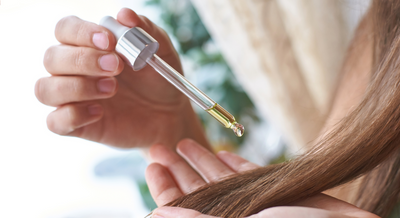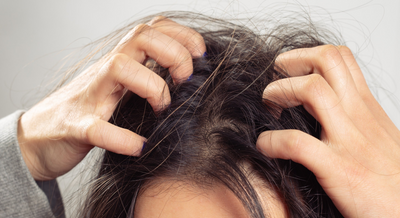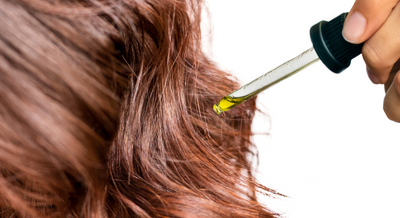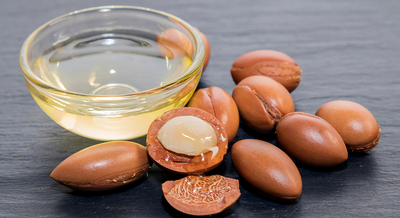Both dandruff and dry scalp can be equally infuriating because both can cause extreme itchiness and discomfort. There is a common misconception that both of these issues mean/are the same thing. While they are related in some ways, they are not entirely the same.
People usually cannot differentiate dandruff and dry scalp by themselves. When they mix-up the symptoms, they, as a result, choose the wrong treatments. To properly treat the illness, you have to know the differences between them.
Let’s take a look into the causes of each problem to understand where you should draw the line of difference.
What causes Dandruff?
Our skin sheds dead cells all the time. If the rate of shedding increases then it causes Dandruff. There are many reasons that can trigger this. Here are some:
Scalp fungus:
A little amount of Dandruff exists on every scalp, but there are certain factors which can make the condition worse. A fungus by the name of Malassezia exists on most people’s scalps. It does not cause any trouble unless its amount increases over what is the normal quantity.
A large quantity of this fungus can speed up the production of dead skin cells, ultimately causing large chunks of flakes.
This, in turn, also triggers itchiness. Your skin may get sensitive to touch and even to other hair care products. So, before you apply any shampoo and conditioners, be sure that you have treated the fungus completely.
Bacterial infections:
A particular type of bacterial infection, which reacts to your skin just like fungus, speeds up the production of dead skin cells. At first, you may notice a large number of flakes on your clothes and your head. They may be persistent and hard to remove. You might want to consult with a dermatologist for proper medication and treatments.
Oily skin:
Our scalp generates sebum, which is a naturally occurring lubrication present on our scalp. Sometimes when you have not washed your hair for a long time, you may notice a greasy feeling and appearance, this is the sebum.
Normal amounts of these oils are healthy for your scalp. They protect your hair and skin from dehydration and dryness. But in some cases, your skin generates more than a normal amount of sebum. It accumulates on your head and generates unhygienic conditions.
The unhygienic environment of oil secreted by your scalp is ideal for giving rise to Dandruff.
Sensitivity or allergic reactions to some hair care products:
Allergic reactions can trigger the worst type of Dandruff. When your skin is sensitive to a hair product, using it frequently will cause the skin to shed faster. You might never notice what type of hair care product reacts to your skin until Dandruff starts. Therefore, stop using the product after initial signs.
What causes dry scalp?
Dry scalp is a skin related problem that is similar to the dry skin you may experience on your arms, legs, etc. Your skin starts flaking off when it does not get the required amount of moisture. A lot of factors can make your skin go dry. Some popular ones are:
Dry and cold weather:
Dry air when it comes in contact with your hair, rips away any moisture that is present. The water content present on your head becomes part of the atmosphere, which in turn leaves your skin severely dry.
During winters, when the surrounding air is dry and cold, the moisture on your head evaporates faster. That is why your skin looks flaky and dry during cold seasons.
You can’t change the weather, but you can change some habits in order to protect your skin. By wearing protective clothing, you can trap moisture in, and moisturizing creams and lotions may also help you against the dry, cold, and windy weather.
Sun Radiation:
Intense temperatures during the summer season accelerate the evaporation rate. If you are not consuming more water than you lose, then dehydration will cause serious problems for you. It is dangerous not only for your skin or hair but also for the entire body. Without sufficient water intake, your body will not work properly.
Direct sunlight can also rip away all the moisture leaving your head dry and scaly. You can protect yourself from harmful sun radiations by wearing protective clothing or using sunscreen lotions.
Hot showers:
Putting yourself against hot, steamy water feels good, but it creates some problems also. Hot water makes your skin and hair warmer; as a result, the moisture evaporates more quickly. That is why your head and skin sometimes feel tight and dry even after showering.
Doctors recommend that people who have dry skin should aim to always wash their hands and hair with cold water. This will trap the moisture in, and your skin and hair will not go dry.
Not drinking enough water:
The source of natural lubrication present on your scalp is your daily water consumption. The source of moisture for your skin will be cut off and you will be left with dry and flaky skin.
You are what you eat. So, the health of your skin depends upon your diet, as well. Fulfilling the nourishment requirement of your body will lead to healthy and radiant skin, while deficiency of it causes dull and dry looking skin.
Age:
When you get older, the ability of your skin to hold and generate natural lubrication reduces. For older people, it is very common to get dry skin. You have to apply the moisture artificially to keep your scalp hydrated. Otherwise, it can cause Dandruff-like conditions.
The difference between Dandruff and dry skin
Even after knowing the source of the itchiness, it might be difficult to know whether you have Dandruff or your scalp is just dehydrated. Here are some signs that you can relate to finding out which one it is.
- Large, greasy and a more significant number of flakes = Dandruff
- Drier and smaller flakes in lesser quantity = Dry scalp
- Itchy skin = Both
- Dry skin on other parts of your body = Dry scalp
- Redness on affected area = Dandruff
- Dry and dull hair = Dry scalp
- Scaly and oily patches = Dandruff
These differences will help you out to understand what type of skin problem you are suffering from.











